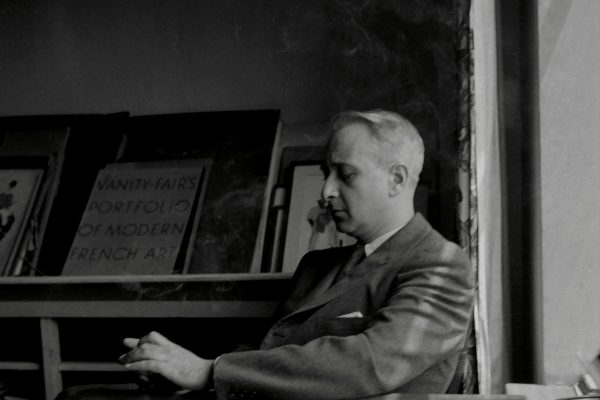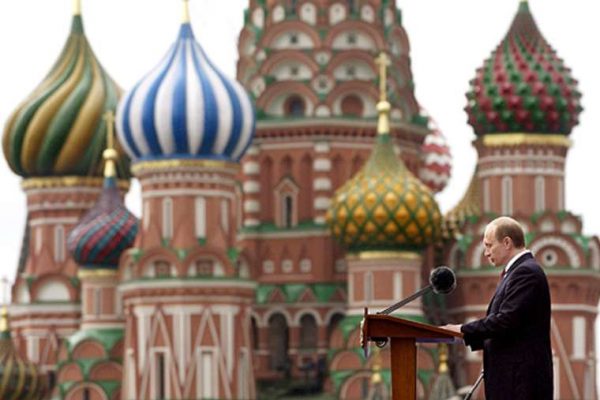Parallels and Paradoxes: Explorations in Music and Society
Daniel Barenboim and Edward W. Said
Edited and with a preface by Ara Guzelimian
Pantheon, $24 (cloth)
Has classical music ever seemed more disconnected from the rest of culture, more dispensable to more people? As Daniel Barenboim and Edward Said point out in this ambitious set of conversations, the days when “educated” people knew and played music as a matter of course are gone. Listening to music, not to mention making it, requires a kind of training that most people no longer receive. Contemporary composers are purposefully difficult. And Beethoven symphony concerts in 21st-century America—part of what Said calls the “routine of luxury”—can be dismissed as merely “confirm[ing] the power and attractiveness of the institution of the orchestra, which becomes a kind of symbol of the prosperity of the society.” “As an intellectual,” Said says, “I’m not interested in finding that out over and over.”
Yet these two friends—literary critic and scholar Said and pianist and conductor Barenboim—who love music passionately, resist its marginalization and explore what it can mean today. They talk as intellectuals, but not as experts (this is not a book of musicology). And though the historical claims of cultural isolation that Said, especially, makes may be overstated and not so new—music has always celebrated its autonomy, as Barenboim points out—their effort to link music with other areas of cultural life is rare and unusually interesting.
Said and Barenboim spend a lot of time talking about the overlap between music and politics. Barenboim, an Israeli citizen, was the first major Israeli musician to perform on the West Bank ; he also broke the 50-year taboo on performing Wagner in Israel in 2001. Barenboim and Said collaborated in 1999 on a project that brought together young Israeli and Palestinian musicians to play in an orchestra in Weimar, Germany. An orchestra, Barenboim says, is a training ground for democracy: “You leave space for others and at the same time you have no inhibitions about claiming a place for yourself.” (This may be easier to say if you’re a conductor.) The image Said gives us of the Weimar orchestra is one of young people, at first mutually suspicious, who learn to put aside “one set of identities,” political and nationalistic, for another as “cellists and violinists playing the same piece in the same orchestra under the same conductor.” Classical music-making becomes a model for global citizenship, a scene in which different identities can find common ground.
You might say the Weimar orchestra could have been a soccer team. Does music have any special power politically? A paradox that Barenboim brings up a number of times is that music is “the best school for life . . . and yet, at the same time, it is a means of escape from the world.” In part because the meanings of a Beethoven symphony can’t be paraphrased into words, one can make purely personal, emotional use of the music. But Barenboim points out that the same ineffability can make musical language politically potent. Musical performance in Eastern Europe or even in Nazi Germany was one of the only public ways in which “social totalitarianism could be criticized”: “A performance of Beethoven, under the Nazis or under any kind of totalitarian regime, whether left of right, suddenly assumes the call for freedom, even becomes a very direct criticism of the policies of the regime.” The music resisted attempts by regimes to co-opt its meaning, and listeners and musicians found a highly-charged space in which interpretation defied ideological control. (Richard Taruskin and others write about the appeal of Shostakovich’s music in the Soviet Union in a similar way.) “This was the one place where they could really be free.”
Much of the book’s appeal lies in overhearing two absolutely cosmopolitan men—an Argentinian-born Israeli who is music director of the formerly East German Deutsche Staatsoper in Berlin, and a Palestinian-American who grew up attending classical concerts in Cairo— discuss the meanings Beethoven (and Wagner and Schoenberg) can have for listeners today in the West. Barenboim’s reflections on Beethoven’s Fourth Symphony as a journey into unknown territory and then a return, not exactly to the same place, leads to a riff from Said on The Odyssey and the literature of exile, in one example of how the coauthors complement each other in an especially interesting way. They talk about the Oslo peace process, the need for courage in making a sudden pianissimo in Beethoven, and the specialization of contemporary intellectual life.
Parallels and Paradoxes has many of the flaws one might expect from transcribed conversations: repetitions, ideas that get dropped too early, non sequiturs that moved the conversation but don’t work on the page, and so forth. Nonetheless, for readers who are passionate about classical music and who have regretted its cultural isolation, this is an extremely welcome book.
—Andrew Hrycyna
Shattered Dreams: The Failure of the Peace Process in the Middle East, 1995–2002
Charles Enderlin
Other Press, $28 (cloth)
Some see the relentless failure of Israeli-Palestinian peace talks as systemic and predetermined. But in Charles Enderlin’s detailed account of the 2000 Camp David talks, the failures seem personal, if inevitable. Enderlin, Middle East bureau chief of France’s public television station, works from participants’ notes and private interviews to reconstruct an endless series of offers, threats, and obstructions. The proceedings are heated, with a fair number of personal asides, outbursts, non sequiturs, odd gestures—and even an occasional joke. To his credit Enderlin does not suppress these but relies on them to add a whiff of humanity to the perpetual standoff.
Though neither side can afford to fail, hope is scarce from the outset at Camp David. Prime Minister Ehud Barak stands a pen upright and says, “If there is no accord, everything will fall down.” The pen falls. A Palestinian makes the same point by offering to take all present out to lunch at the fanciest restaurant in Israel if an accord is reached. No one bothers to take him up.
While the Israelis come off as dry and technocratic, the Palestinian camp makes up in humor what it lacks in flexibility. When Benjamin Netanyahu abruptly pulls out of Camp David on the grounds that the Palestinians are not serious about security (reportedly crowing “I’ve got them by the balls!”), a Palestinian negotiator lashes with Yiddish humor when asked to comment, replying, “I’m a gynecologist, not a psychiatrist.” Later, when Barak nearly chokes to death on nuts, a Palestinian whispers to Bill Clinton, “The man who wants to give us peanuts will choke on peanuts.” Clinton laughs but makes him promise not to tell the Israelis.
Counter to his public image, the Clinton portrayed here knows how to throw his weight around. At Arafat’s intransigence on the question of Jerusalem, Clinton cryptically bellows, “It’s sickening how you confuse the dead and the living,” then leaves in a huff. He later excoriates a Palestinian negotiator for posturing: “This isn’t the UN General Assembly. If you want to give a lecture, go over there and don’t make me waste my time. I’m the president of the United States . . . I also risk losing a lot here.” Several times he threatens Arafat with the loss of his personal friendship.
On the softer side, it’s hard to know what to make of the odd courtship that develops between Yasser Arafat and Madeleine Albright. It starts off innocently enough. Incensed by an Israeli-slanted American proposal, Arafat flings it to the ground and orders it sent back:
Aide: To whom?
Arafat: To Clinton!
Aide: Sir, it’s 2:30 in the morning.
Arafat: Whom can we wake up?
Aide: Maybe Albright.
Arafat: Go ahead!
Things get rocky when the discussion turns to Palestinian statehood:
Albright: You will have a state!
Arafat: I have always had a state!
Albright: You’ll have our economic and financial support for your future state.
Arafat: When I have that state, the whole world will support me. I don’t need your money.
But soon after, to apologize for another rude outburst, Arafat kisses Albright’s hand six times on each side. Later, in Paris, Albright is the only one who is able to bring Arafat back to the bargaining table, by “holding him close to her and not letting go.”
While the failure of the talks is painfully overdetermined, one crippling asymmetry is clear: the limits of Israeli public opinion are assumed to be a force of nature, but the Palestinians take no end of flak from the Americans for being held hostage to Arab opinion. State Department official Dennis Ross chalks this problem up to a deeper inconsistency, the “huge gap that developed between the reality on the ground and the reality around the negotiating table.” As Enderlin alternates between the talks and the territories, the reader may be forgiven for wondering which exchange was the less productive; the question loses meaning when Sharon’s visit to the Al Aksa mosque spurs a new intifada.
Ironically, the France 2 station Enderlin runs is the only place in Tel Aviv where the presence of the two key negotiators from each side would not arouse the curiosity of the press. After Camp David was over and done, they had a series of secret discussions there, and developed something like a friendship.
—Jascha Hoffman







